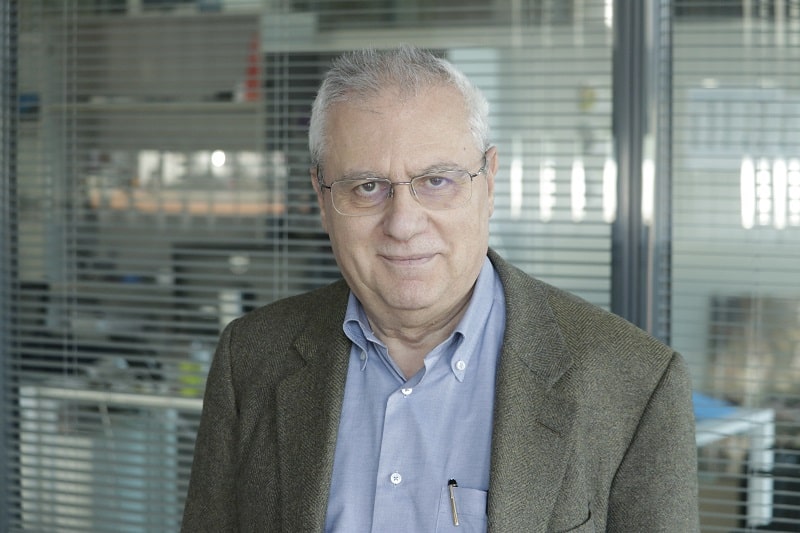Today theAI Forum 2021, the event of AIxIA designed to take stock of the use ofartificial intelligence for companies and beyond. An opportunity to evaluate how new technologies are changing the way business is done, but also how they are perceived by users. And what are the future expectations and possibilities. Artificial intelligence is increasingly entering our lives, a series of tools with a great social impact. But they still need to be analyzed
AI Forum 2021: AIxIA talks about artificial intelligence for companies and society
Rosalba Reggio, Web TV Manager of Il Sole 24 ore, led a continuous and articulated discussion between different speakers. Between speeches, presentations and round tables, the AI Forum 2021 gave several interesting ideas, which were then analyzed in detail in the parallel sessions and in the online workshops.
The first speech that gave an idea of the complexity (but not necessarily difficulty) of the event held it Piero Poccianti, President of AIxIA. Which began by defining the fields of artificial intelligence, which range a lot. They range from the recognition of numerical patterns to the possibility of having machines capable of thinking fully, of making art. But comparing human intelligence to artificial intelligence does not always help. Poccianti gives the example of the millions of images that a machine must analyze before being able to recognize when it has a dog or a cat in front of it. A child needs much less, because he has the ability to abstract.
So we need to be especially careful in evaluating the current potential and future prospects of AI. By investing in training, even in companies. Especially in the future. In this context, remember the so-called Amara’s Law, a well-known American scientist and futurist. Who said that “we tend to overestimate the effects of technology in the short term and we tend to underestimate them in the long term.”
 Piero Poccianti, President AIxIA
Piero Poccianti, President AIxIA
After the words of the President, they intervened Stefania Bandini, Full Professor of the University of Milano-Bicocca e Alessandro Sperduti, General Chair of IEEE WCCI 2022 Padua. They explained what to expect at the upcoming IEEE WCCI 2022 international conference, which will be held in Italy.
An analysis of the world of Artificial Intelligence in our country
Nicola Gatti, Director of the Artificial Intelligence Observatory and Lecturer at the Politecnico di Milano, took stock of how artificial intelligence is increasingly weaving a direct relationship with the Italian industry. In fact, the Observatory has analyzed further 350 companies, with 71 questionnaires. But then he also conducted an online survey with 235 organizations medium-large and another, in collaboration with BVA Doxa, with a thousand consumers.
They grow up company investments
The first data that emerges is the growth of investments in the AI field, which rises by 15% to 300 million euros in 2020. 77% of the capital comes from Italy, with a focus more on software (62%) than on Services (38%). A third of these investments involve data analysis (especially for forecasting in the future). But the use of chatbots and voice assistants (10%), image analysis (10%) and intelligent automation (11%) are also growing.
23% of these investments are covered in the financial dress. Energy (14%), Media and Telco (12%), Insurance (11%), Logistics and Pharmaceuticals also grew. In the retail and manufacturing sectors (13%), on the other hand, they remained at the same values as before.
Consumers more and more informed
Speaking instead of consumers, it emerges as the 94% have heard of AI, now a common reality. 49% learned it from TV, while 38% from movies and TV series, 36% from digital media and 28% from general newspapers. 83% have a positive opinion (of which 17% very positive). Only 3% have a negative one, while 14% remain indifferent.
The 27% of people have studied the subject in depth at school or for work. 65% think it is useful for solving specific tasks, even 60% recognize its usefulness for driving vehicles. 58% think it can interact with humans and 40% believe it is capable of logical reasoning. However, only 51% interacted with it directly, although the percentage rises to 63% for the youngest under 34 years old. Especially with voice assistants on the phone (65%), smart speakers (62%), suggestions from ecommerce sites (58%), internet navigation assistants (53%) and for suggestions on on-demand platforms (51%) ).
When it comes to future prospects, 69% are in favor of using it for the public surveillance. 65% hope it can help i medici in analyzes, although only 48% would like it to be used for self-diagnosis. 62% are in favor of AI for insurance policies, a percentage that drops to 49% when the policy is healthcare. 60% would like it to be used for Facial recognition.

Focus on business
Finally, 53% of medium-large companies have started at least one AI project. But there is a huge gap based on the size of companies. 61% of large organizations compare with 21% of medium-sized ones. Sharp gap in the past year. However, 73% of respondents have started at least one project in the past 12 months.
The focus seems to be mainly on Big Data, which strongly contribute to the implementation of AI (89%). Also Cloud (49%) e IoT (46%) among the most followed trends. The main barriers for those who do not invest concern budget restrictions (35%) and the commitments already made by managers (34%), while further back the difficulty in identifying similar business cases (26%).
Finally, the attention towards two new figures of Team AI emerges: theAI Engineer e l’AI Manager, in addition to the data analysts.
Artificial intelligence, between myth and reality
Keynotes from Google e QuestIT, sponsor of the event, who explained how the integration of artificial intelligence is changing the way of doing business.
The morning plenary session then closed with an interesting round table moderated by Emanuela Girardi, Founder of Pop AI and Member of the AIxIA Board of Directors. He talked with Daniele Nardi, Full Professor of Artificial Intelligence at La Sapienza University of Rome and Director of the National Laboratory of Artificial Intelligence and Intelligent Systems of CINI. And then with Silvia Ronchiadin Data Scientist Specialist – Intesa Sanpaolo Innovation Center.
The theme of the debate was “Between myth and reality: what AI actually allows to do “. A really interesting discussion, because it is supported by a lot of data about the worldview of artificial intelligence that many users have. A red thread that linked all the interventions. The potential of AI is so great that many tend to not knowing its current and future boundaries. So the worry and the excessive hopes alternate without grasping the immediate uses.
The entire panel emphasized how AI and machine learning algorithms are an instrument, not an end. Something that can make life and work easier for many people. But which requires precise intentions on the part of our very human intelligence. To define its boundaries and interpret the results. Not a monster or a savior, but a technology that can help change the way we work and live. If we choose it.

AI Forum 2021: parallel sessions and workshops of AIxIA and sponsors
Following the plenary sessions of the AI Forum 2021, there were parallel sessions that explored different ramifications of AI. For instance Emanuela Gherardi moderated a debate between Bernardo Magnini, Researcher at the Bruno Kessler Foundation (FBK), e Cosimo Accoto, MIT Fellow & Open Search Group Ambassador. A discussion to assess how AI is changing our lifestyles.
Giangiacomo Olivi, Partner of Dentons and Head of TMT Italy, e Piero Poccianti instead they presented a proposal put forward by the European Commission to regulate Artificial Intelligence in Europe. But then there was also talk of the impact of AI in the education sector, with a panel that includes among the participants Cristina Pozzi, Board Member e COO and Head of Contents di Treccani Futura. Nicoletta Boldrini finally he moderated the dialogue between Massimo Chiratti, Chief Technical & Innovation Officer of Lenovo, e Marco Bentivogli, National Base Coordinator. The aim of the discussion was to assess how technology is changing the way we experience spaces and territories. With an interesting focus on mobility.
Also, there have been well 13 workshop led by sponsors.
Focus on Industry 4.0
In the afternoon, an important event organized by the European Commission. Lucilla Sioli Director, Artificial Intelligence and Digital Industry for the European Commission, explained how Europe wants to govern this new technology. In particular at the industrial level, which will be the key to having an economic advantage in the EU. Sioli explains that, working with Member States, the EU is investing in basic and industrial research but has also created organizations to help experiment in the market with artificial intelligence. In particular in the manufacturing, agriculture, energy and health sectors. But not only: supercomputers, financing for semiconductors, cloud and all those peripheral but important resources for AI. In this way, the EU will invest well one billion euros a year in AI.
Finally, the round table “Artificial intelligence and corporate business: a relationship that is starting to mature”. Moderated by Rosalba Reggio, saw the virtual interventions of Massimo Antonazzi, lawyer and adjunct professor in Negotiation Techniques and Strategies at Link Campus University. Then Paolo Costanzo, Co-Founder di SBC Global Alliance, Marina Geymonat, Head of Innovation Lab of Sisal. In the end, Raffaella Iarrapino, CMO Events and Reports of Readytec Group, e Piero Poccianti. At the center of the discussion is the importance of technologies such as artificial intelligence and IoT in companies across Italy. With a particular focus on Industry 4.0.
L’AI Forum 2021 showed how the interest in this new technology, both from companies and consumers, is increasing. But there remains the need to invest in training in order to manage this tool in the …















Leave a Reply
View Comments